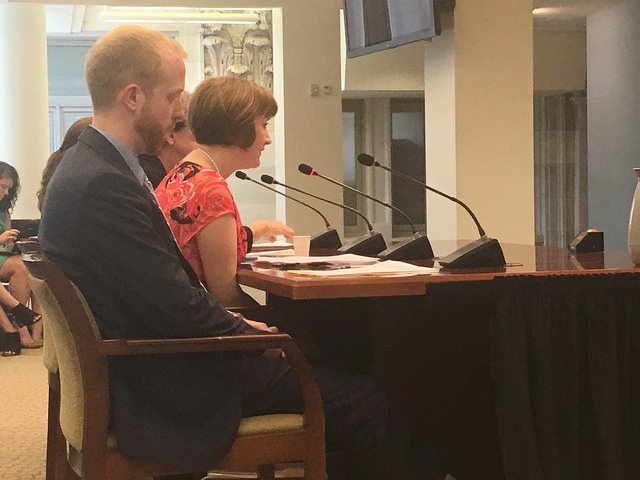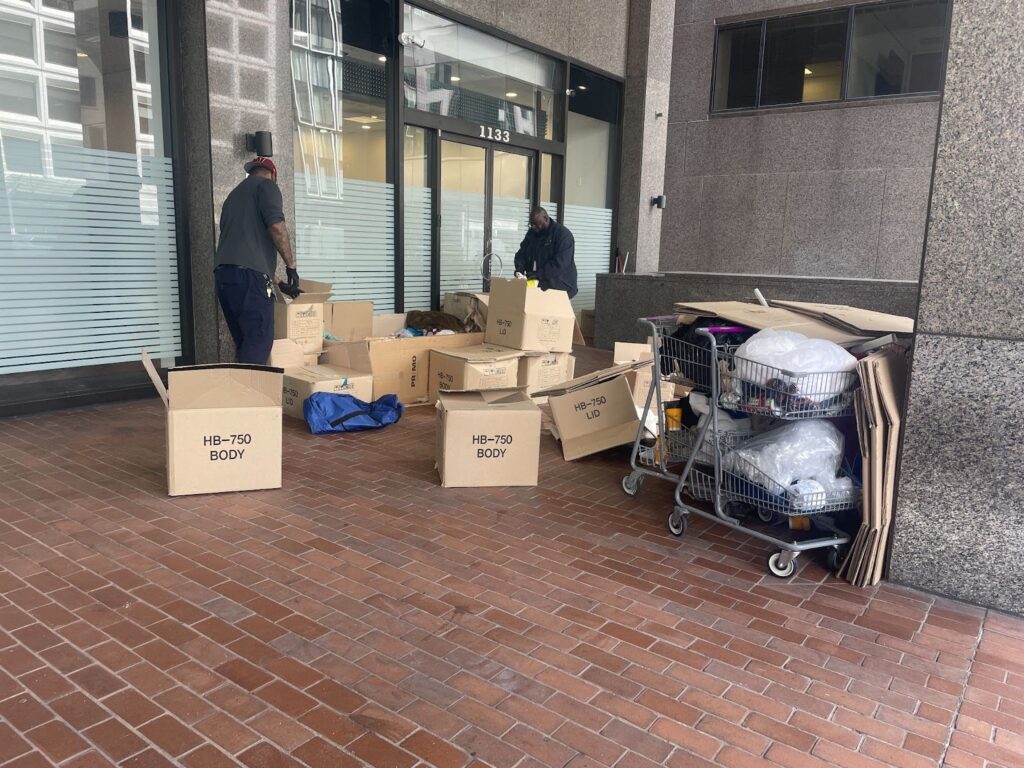Homeless residents and community advocates voiced concerns at a June 14 Committee on Human Services hearing that Mayor Muriel Bowser’s proposed amendment to improve housing services would instead limit access to shelters and housing.
After 11 months and more than 20 meetings between D.C. departments, local advocates and people experiencing homeless, Bowser proposed amending the Homeless Services Reform Act of 2005 to align D.C. law with federal policy and to modernize the bill.
During the committee hearing, Kristy Greenwalt, the director of the D.C. Interagency Council on Homelessness, and Laura Zeilinger, the director of the D.C. Department of Human Services, cautioned committee members and advocates that limitations for services are necessary to ensure that resources remain to help people entering the system.
“When the HSRA was originally drafted, our response to homelessness was focused on shelter,” Greenwalt said at the hearing. “Today our focus is on helping people exit homelessness to permanent housing as quickly as possible.”
One contentious change would increase the number of documents individuals and families must provide to prove their residency from one to two. People applying for shelter must demonstrate D.C. residency within three days of accessing services. DHS has found that people coming into shelters are using the three-day period to become a District resident, according to Zeilinger. She reassured that, under the amendment, if the person seeking shelter has qualified to receive other benefits in D.C., such as food stamps or Medicaid, the department would be able to confirm they are a resident by checking those records.
“We’re not just trying to keep people out. I want to be clear about that,” Zeilinger said during the hearing. “What we’re trying to do is just implement what was the intention of the council and create an expectation that we’re prioritizing services for District residents.”
The Department of Human Services did not return requests for additional comment.
The amendment would also change when some are considered homeless. If passed, to qualify for shelter, people would need to present “clear and convincing evidence” that they cannot return to any other safe housing. Individuals or families looking for shelters to escape domestic violence, sexual assault or human trafficking would be exempt.
Amber Harding, an attorney at the Washington Legal Clinic for the Homeless, said that most of the changes could greatly limit who is eligible for housing and services, especially since some families may not have access to evidence required to demonstrate they do not have other housing. She added that she is most concerned about the power the amendment would give to the mayor to terminate a family’s eligibility for services.
“I find it honestly a little hard to imagine anyone would pretend to be homeless to live in our shelter system considering what our shelter system’s like,” Harding said.
The Washington Legal Clinic for Homelessness hosted a session before the hearing to teach members and representatives of the homeless community about the changes the amendment would make and to help those willing to speak at the hearing with their testimonies.
Throughout the hearing, representatives of the homeless population and advocates praised some parts of the amendment, including the addition of client rights for those living in permanent supportive housing, more available positions on the Interagency Council on Homelessness, and its attempt to define a process for program exits.
Councilmember Brianne Nadeau, the chair of the committee, told Street Sense that she anticipates more changes will be made to the legislation. She will be reviewing testimony submitted through June 28 to determine what will be adjusted. A markup date to adjust the amendment has not been set, Thomas Fazzini, Nadeau’s deputy chief of staff and communications director, said in an email.
“My goal is to move carefully and thoughtfully so that we can have a bill that best reflects not only the intent of the mayor, but also the concerns of the advocacy community and the practitioners and the people that are being served by the legislation,” Nadeau said in an interview.
Some of the community members struggling with housing said the new amendment disregarded many problems they felt should be addressed.
Robert Warren, executive director of the People’s for Fairness Coalition, said the amendment failed to acknowledge many of the issues that the community has pushed for like extending shelter hours and adding case managers.
“The changes I’ve seen were based to benefit service providers,” he said. “There wasn’t really anything in there that was really beneficial to the client.”
Greenwalt added during the hearing that the DHS and ICH are addressing shelter conditions and case management problems separately from the amendment.
Several public witnesses testified about their involvement in the rapid rehousing program, including frustrations about being unable to work and with the housing conditions, and requested the program be revamped.
The amendment defines rapid rehousing as a permanent housing program because the housing is considered permanent, Greenwalt testified.
Zeilinger testified that 86 percent of families do not have another episode of homelessness after the rapid rehousing program, but the Washington Legal Clinic for the Homeless published a study in May that states two out of five families are able to maintain housing on their own.
Nisa Harper, a mother of four, testified at the hearing about living in the rapid rehousing program for more than two years. Harper said in an interview that she has dealt with flooding, rodents and roaches in her apartment. She said currently she is unable to take a job because of the housing issues in addition to a lack of childcare.
“You can’t tell me it’s working,” she said. “I’m in it.”








